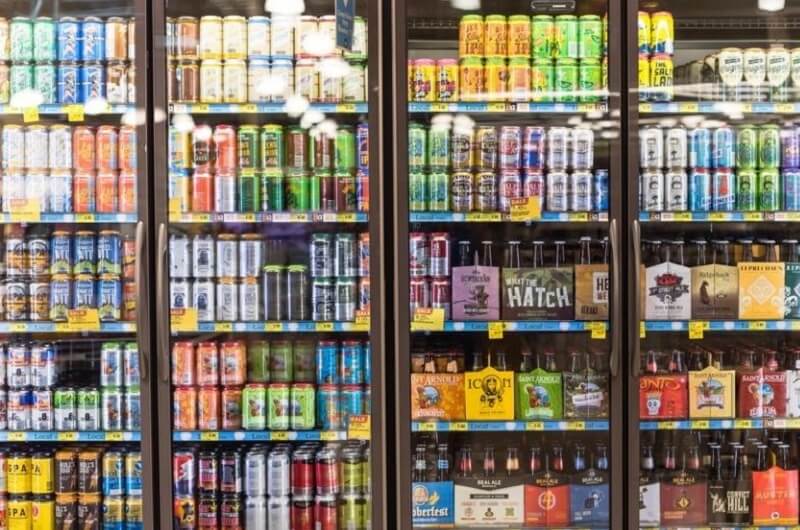Ah, wine coolers. The very mention of them conjures up images of casual, laid-back gatherings and picnics in the park. These delightful beverages are often fruity, refreshing, and easy to drink. But there’s a question that’s likely crossed your mind: Are wine coolers carbonated?
In this comprehensive guide, we’ll dive into the effervescent world of wine coolers to explore whether they are carbonated or not. Along the way, you’ll learn about their history, how they’re made, and what sets them apart from other alcoholic beverages. So grab your favorite stemless wine glass, and let’s begin our journey into the bubbly—or not so bubbly—realm of wine coolers.
What is a Wine Cooler?
The Basic Composition
Before we pop the cork on the carbonation question, let’s understand what a wine cooler is. A wine cooler is an alcoholic beverage made primarily from wine and fruit juice, often along with other ingredients like sugar and flavorings. These drinks are known for their refreshing qualities and are generally lower in alcohol content than traditional wines.
The Evolution
Historically, wine coolers have undergone various transformations. In the 1980s, they gained immense popularity as a lighter alternative to beer and cocktails. Over the years, the recipes have evolved, with companies now offering an array of flavors, from classic citrus to exotic tropical combinations.
Market Varieties
Today’s market is brimming with a plethora of wine coolers, ranging from traditional to trendy:
- Traditional Wine Coolers: Made with actual wine and fruit juice.
- Malt-Based Coolers: These use malt alcohol instead of wine.
- Artisanal or Craft Coolers: These are often handmade and may use organic ingredients.
The Carbonation Conundrum
The Simple Answer
Now, let’s get to the fizz of the matter: Are wine coolers carbonated? The short answer is, it depends. Some are carbonated to give that effervescent kick, while others are intentionally left still to let the flavors shine through without the distraction of bubbles.
Factors Influencing Carbonation
Several factors can influence whether a wine cooler is carbonated or not:
- Brand Preferences: Some brands specialize in carbonated wine coolers, while others focus on still varieties.
- Flavor Profile: Carbonation can affect how we perceive flavors. Fruity or citrusy flavors, for example, may be enhanced by the zest of carbonation.
- Alcohol Content: Higher alcohol levels can sometimes mask the sensation of carbonation, making the beverage feel less bubbly.
How to Check for Carbonation
If you’re shopping for a wine cooler and wonder whether it’s carbonated, here are some tips:
- Label Reading: Brands often indicate on the label if the product is carbonated.
- Visual Cues: Look for bubbles clinging to the sides of the bottle or can.
- Ask or Research: When in doubt, a quick query to the store staff or a brief online search can clarify.
Why Carbonation Matters
The Sensory Experience
Carbonation isn’t just about bubbles; it’s about the entire sensory experience of enjoying a beverage. The effervescence can accentuate aromas, tickle your palate, and make each sip feel like a little celebration. On the flip side, a still wine cooler allows you to savor the subtleties of its flavor profile, unembellished by the vivacity of bubbles.
Pairing with Food
The presence or absence of carbonation can also influence how well a wine cooler pairs with food:
- Carbonated Coolers: These often go well with salty or fried foods, as the bubbles can cut through the grease.
- Non-Carbonated Coolers: These are generally better suited for lighter fare, like salads or seafood, where the nuanced flavors can shine.
Personal Preference
Ultimately, whether you prefer carbonated or non-carbonated wine coolers comes down to personal taste. Some people adore the fizz, while others prefer the straightforward simplicity of a still beverage.
Making Your Own Wine Cooler: To Carbonate or Not?
DIY Wine Coolers
If you’re a fan of personalized flavors and enjoy a bit of culinary experimentation, making your own wine cooler at home can be a rewarding experience. The best part? You get to decide whether to add that effervescent zing or keep it smooth and still.
The Carbonation Process
Should you opt for a homemade carbonated wine cooler, you have a few methods at your disposal:
- Natural Fermentation: Adding a bit of sugar to your mixture and allowing it to ferment naturally will produce carbonation over time.
- Forced Carbonation: This involves using a carbonation machine or soda siphon to inject CO2 into your beverage.
- Club Soda Trick: A simpler method is to mix your wine and juice with club soda to achieve instant carbonation.
Ingredients for a DIY Wine Cooler
Here’s a basic list of ingredients you might consider:
- Base wine (white or rosé work well)
- Fruit juice or fruit puree
- Optional sweeteners like simple syrup or honey
- Spices or herbs for added complexity
- Carbonating agent (if desired)
Experiment and Enjoy
The joy of making your own wine cooler is the freedom to experiment. Test out different wines, juices, and levels of carbonation until you find your perfect blend.
Conclusion: The Sparkling Truth About Wine Coolers
As we’ve journeyed through the effervescent landscape of wine coolers, one thing is clear: carbonation is a matter of personal preference and product design. Whether you’re a fan of the fizz or prefer your refreshments to be still, there’s a wine cooler out there to match your taste.
Key Takeaways
- Variability: Not all wine coolers are carbonated. Some brands offer sparkling options, while others focus on still beverages.
- Sensory Impact: Carbonation can enhance certain flavors and aromas, making the drinking experience more dynamic.
- Food Pairing: The carbonation level can influence how well a wine cooler pairs with different types of food.
- DIY Options: Making your own wine cooler allows you to control the level of carbonation, among other variables.
The Last Sip
So the next time you find yourself contemplating a wine cooler, you’ll know exactly what to look for, depending on your carbonation preferences. Cheers to that!
